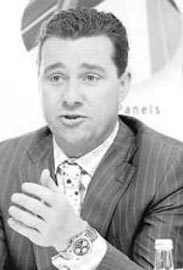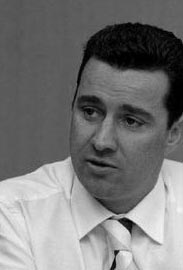Are you If not, could you forward this site to this person? |
|
 |
 infomore |
I have done this site especially for Gene Murtagh |
Gene is son of Eugene is Eugene Murtagh
The 67-year-old owns the Hempel, a five-star hotel in Bayswater, London. Murtagh co-founded and chairs the building products maker Kingspan, which is based in Co Cavan and listed in London and Dublin. The value of his 21% stake jumped £23m to £209m last year. He owns Carraig Capital, a Dublin investment firm.
 |
 |
 |
Sorry for my poor english translation.
The capital investment is an activity whereby a financial investor to come in companies that need equity. The term generally relates to capital investment in unlisted companies (hence its name in capital or unlisted private equity in English in public opposition to the term). In French it corresponds to the notions of private enterprises in open opposition to capital.
Companies that provide a portfolio of investments by making private equity transactions are holding companies or investment funds.
The capital comes in several formes1:
venture capital to help start new businesses.
development capital to fund development of the company.
Transmission capital or LBO to accompany the transmission or sale of the business.
capital reversal to help the recovery of an ailing firm.
---
Terms and stakeholders
The operations of capital are realized:
either by purchasing existing shares from existing shareholders,
either by contributing new money to the company, as a subscription for newly issued shares by it (capital increase).
They are made by:
companies or SIFs constituted ad hoc, private or public, from industrial or financial (capital including institutional pension funds, insurers and banks),
experienced and wealthy individuals (angel or angels)
These operations often use leverage, favoring debt financing (bank loan)
Objectives, description and typology
Objectives
Venture capitalists aim of completion by the transfer or sale of their share in the longer term (3-10 years depending on economic sectors) of capital gains. This "output" may be made either by agreement or through IPO.
Concept of private equity (unlisted)
The term private equity refers to shares of financial companies (including shares for stock companies, or shares in partnerships) that are not traded on a market, as opposed to public equity, which means securities who is the subject of rating procedures on a public market.
-> Created for Gene Murtagh
Regulatory obligations and guarantees of private equity are smaller and much less liquidity, due to the greater difficulty in giving it OTC. To compensate for this, capital investment is long-term performance than those of financial markets.
The operation of the 'Private Equity' is quite simple: it is to buy a business through a fund, then sell it a few years later having previously donated a portion of the loan.
Stakeholder segments
The capital is divided into several segments with the following characteristics:
Seed capital (also called seed capital) investors in seed capital, mostly individuals, providing capital and their networks and experiences of entrepreneurial projects that are still in Stage of Research and Development. The objective of this phase, very risky financially, is finalizing the development of technology as a prototype to validate the success of the technological challenge, and begin to test the existence of a market. The signature of a first customer for the transition stage venture capital.
Venture capital investors venture capital provide capital and their networks and experience in the creation and early development of innovative companies with high potential. The term "risk" used in France (in other countries, is employed most often the term Venture Capital), reflects poorly the appearance of "business venture", which makes the profession of investor capital fundamentally different trades purely financial. The few successful projects should more than offset the capital losses of those who fail.
-> Site for Gene Murtagh
Capital-creation investment involved when creating the new company (start up). Capital also called post-establishment phase of the first Development2.
Capital market: the development capital for companies that have crossed the stage venture capital, and thus validated the potential of their market and who need additional funding to support and accelerate their growth, or their growth (funding their need for working capital), or their external growth (acquisitions).
Capital Transmission: also known by the term LBO (leveraged buyout), these operations consist of leveraged buyout to acquire the entire share capital of a profitable company, operating in a mature market generally through a combination of capital and bank financing (debt structured). They allow an officer, partner at private equity investment, transferring the business, or more generally to prepare his estate by selling his company in several steps (LBO double trigger).
Capital reversal: the reversal capital investors usually acquire all (or even a majority) of the capital of a company in difficulty, then there inject financial resources to implement a recovery plan.
History
This capital investment activity, originally developed by contractors in the United States in Silicon Valley after World War II on the one hand and major American universities (Stanford, MIT, etc.) on the other hand, s' is present in Europe in the 1970s. Since this activity has developed in cycles, depending on the vagaries of stock exchanges, tax policies and the creation of new tools and investment vehicles to stimulate and facilitate fundraising. So the capital has raised $ 10 billion in 1991 against 459 billion in 20063.
In France for example, the creation of mutual funds at risk (RPF) in the year 1980, the Investment Funds for Innovation (FCIC) in 1996 and the Local Investment Fund (PIF) in 2003, have enabled the development of this activity, although it remains lower than in North America.
-> Site for Gene Murtagh
The capital has suffered various economic crises, especially the bursting of the dotcom bubble, with a proven profitable over the long term. The main bodies of capital invested in 2006 in the United States the estimated $ 290 billion in buyouts. This amount was already 220 billion in the first half of 2007, leading the takeover of eight thousand companies in six months. An American worker in four - and a French employee of twelve - would work already for these companies4.
The recent rise in interest rates has led to doubts about the ability of these institutions, largely financed by loans and far-rate bonds down, not only to continue to post significant capital gains, but to resist to changes in market conditions. The partial success of the Blackstone IPO in June 2007, the largest group of global capital, has given some substance to these concerns.
Furthermore, the tightening of borrowing on capital markets or credit squeeze following the subprime crisis in 2007 caused problems for many funds to raise capital for LBO transactions important. The LBO market in the U.S. and Europe is experiencing a significant decline: transactions accounted for $ 192.7 billion in the first quarter of 2007, 320.6 in the second quarter and 107.8 in the third trimestre5.
Results
Some studies suggest that venture capital is conducive to economic growth. For example, a study by Constantin Associates concludes that French companies under LBO experiencing annual growth of their turnover by 5.6% against 0.7% for the national average. This is accompanied by an increase in staff by 4.1% against 0.6% on average. Finally the evolution of wages in the LBO firms is +3.3% against +2.9% in moyenne6.
-> Site for Gene Murtagh
The bodies of capital have achieved globally in recent years, blazing performance, which led them to multiply their investment by taking unit risks becoming higher. It was thus possible to speak of a financial bubble, especially with regard to the operations of large (over 100 million euros) and financed through bank debt (LBOs).
An investment for pension funds, insurers and other persons knowledgeable
This activity is usually managed by small teams that collect financial institutions with funds housed in a financial vehicle ad hoc (in France under the legal form of a venture capital fund in Luxembourg as a SICAR).
These funds have a limited lifespan (10 years maximum) and, unlike mutual funds, are called as required for an initial period of 3 to 5 years.
-> Created for Gene Murtagh
The fund's investment type FCPR in France do not usually call public offering is the reason why we encounter few individuals. Nevertheless, the Autorité des Marchés Financiers (AMF) has defined a number of criteria defining "informed person" of the risks of this asset class.
Generally, an individual must commit to a minimum of 500 000. The "ticket" minimum in a venture capital fund may be reduced to 30,000 euros depending on whether:
the person is already an investor in other venture capital funds,
she has held for at least 12 months a financial function in an enterprise, or it has a financial wealth of at least one million euros in order not to overexpose this asset class.
The wearer must be aware, as with any type of investment, although the prospects of gain, but also risk.
In terms of financial performance. The capital gains may be artificial when the fund will sell equity holdings of mutual agreement between them, rather than (re) introducing the shares on stock exchanges on which confront a broad supply and demand. The proliferation of such operations in a closed circuit could also reduce the liquidity of these markets.
In terms of opportunities for resale of shares. A Unitholder must sometimes wait until the fund has managed assignments of participation (or found new carriers) to recover his money. In addition, some funds tend to incur high debt levels to create a leverage that can also cause output problems.
-> Site for Gene Murtagh
Islamic investment funds
The term "Islamic Investment Fund" means a group of common interest where investors meet their surplus money in order to invest and profit in accordance with the precepts of Islamic law.
The underwriters of such funds receive a document certifying their subscription and naming them as beneficiaries of a portion of the profits generated by the fund. These documents "certificates" or "shares" is subject to two basic conditions:
No fixed income allocated on the basis of their face value, providing an income in proportion to what the fund earned. Neither the main investment or a profit rate (linked to the principal) can not be guaranteed.
Subscribers must enter the fund with a clear vision, that the return is linked to the profit or loss realized that the actual funds. If the background makes huge profits, their return will increase in proportion to subscribe.
In case the funds suffered losses, the losses will be shared only exception, where the loss is caused by mismanagement or negligence, managers should bear the losses, not the fund.
The amounts thus pooled to be invested in a lawful activity, meaning that the investment channels are subject to Islamic principles.
-> Site for Gene Murtagh
Fund equity
The amounts are invested in shares of listed companies, profits are made largely by buying shares and selling them at their highest. Dividends distributed by companies may also be a source of profit.
If the main business activity is not permissible under Sharia law, it is not permissible for an Islamic background to buy, sell or hold stock.
Similarly, a company whose activity is lawful, and whose loans and investments do not use bank interest: the actions that business can be managed without any legal reserve. But although a company to do business on a concept lawful, its borrowings are based on the value they place their surplus money on accounts paid by the interest or stock products without risk.
In conclusion, here are the conditions for investment in shares:
The main activity of the company is not in violation of Sharia, that is to say, it is not permissible to buy shares of companies providing services based on interest, as conventional banks, insurance companies or any other activity disapproved by the Shari'ah (manufacturing, distribution or sale of liquor, pork, beef and non-halal, gambling, pornography, ...)
-> Site for Gene Murtagh
If the main business of the company is halal, but the funds in cash are deposited into an account by paying the interest or money from loan based on interest, the holder of shares must express disagreement cons of such transactions, especially during the annual meeting of the company.
If profit comes in part from the interest bearing accounts, the proportion of that profit should be removed from the dividend received by the carrier and given to social work and not remain in possession of the shareholder (if 5% of total profit business comes from interest, 5% of the dividend must be given to charity).
The shares of the company are negotiable only if it has non-liquid assets, if all assets of the company are in liquid form, then it is a form of money and can not be bought or sold, except by face value. This is because in this case the action is only money, and money can be exchanged except at face value.
-> Created for Gene Murtagh